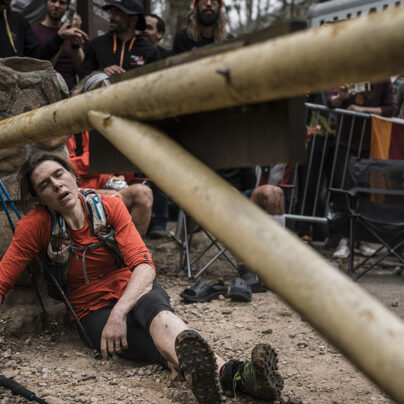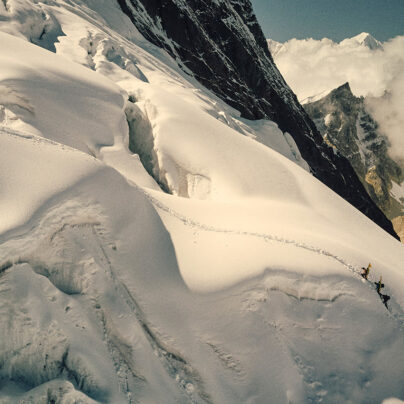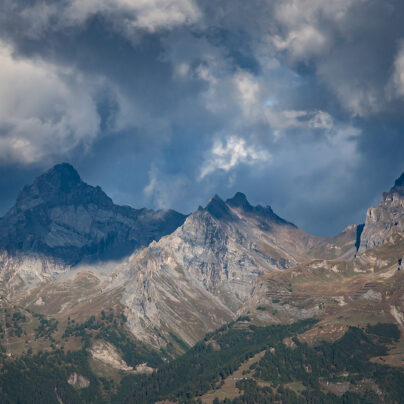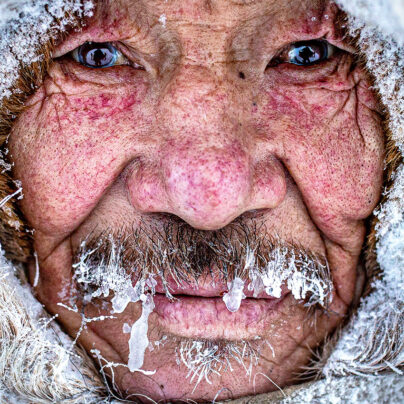Slowly, Slowly
Making connections in the Khumbu
Written by Marley Jeranko // Photography by François Lebeau & Jessica Talley
It’s July, and I have six weeks before I set foot in Nepal. But right now, these six miles are all that matter. I’m running up a pavement hill in the Northwoods of Wisconsin. Croaking toads in the swampy background keep pace while I push through the sting of lactic acid building in my calves. Theoretically, 10km is how far you need to be able to run at sea level before attempting the trek to Everest Base Camp. I’ve never run more than four consecutive miles – I don’t even like running. I’m just not cut out for this… But, ‘It’s not about the summit!’ I echo over and over, remembering the precept my team agreed on. With them, I’d nodded in unison, but here, I wonder: if it’s not about doing what we said we’re going to do, what is all this for?
***
Out in the Khumbu, nothing is organised by time. No meetings, no set agenda, no need to squeeze this or that in. For once, there’s so much time that, after a while, our sense of it softens, turning broken-up blocks into fluid freedom, structure into natural rhythm. But that habit of hustle persists. We spend the start of the trek racing to the finish line, arriving at our tea houses exhausted and ahead of schedule.
The words ‘slowly, slowly’ are recited so frequently by our Nepalese guides that they start to feel like our own conscience. Like herders leading their sheep, we’d hear their voices gently creeping back in at the first signs of acceleration, magnetising us back together. At first, there’s friction – somehow it feels arduous to do less, as if walking through mud – but eventually we shift, finding a calmer cadence.
The more we adopt their foresight, the more space opens up to appreciate its impact. From mossy floors to rock piles to glacial fields, we feel each transition more gradually. And as we move through them, our connections with each other grow stronger.



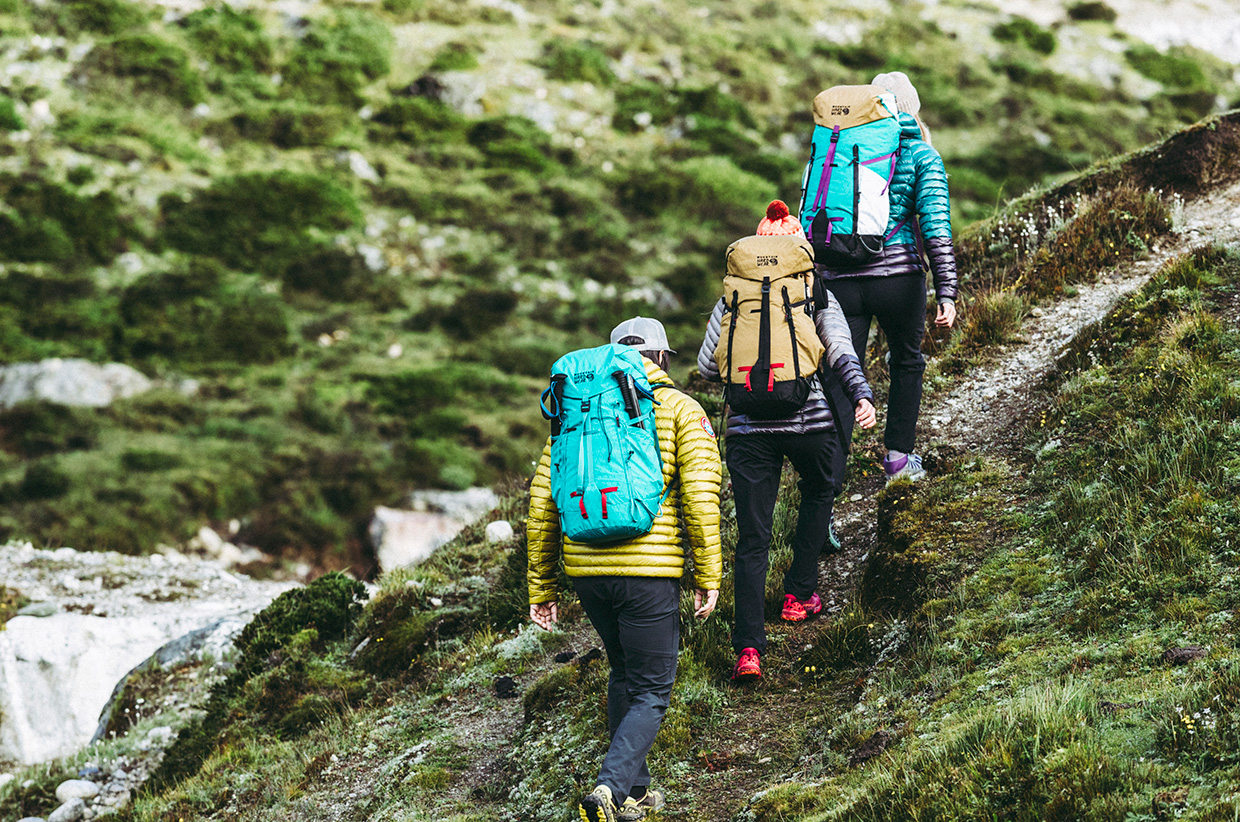

Right as I am beginning to think I have it all down, the very principle of slowness shifts, too. No longer just a choice, slowing down determines our well-being: a reciprocal and endless loop between mind and body. But whether or not I can adapt to that principle depends on more than myself – I have to lean on those around me. And at 14,000ft, it’s getting easier to notice a plateau of my own aptitude.
In a place where each step is more gruelling than the last, I’m eager to enjoy a full day of tea-sipping, note-scribbling, and page-flipping under the shadows of Himalayan mountains. But as altitude amplifies strain and risk, we needed to acclimatise. After Pheriche, our goal is to reach 16,500ft before moving farther up the valley, and Nangkartshang Peak is the perfect prospect. Only two miles to the top – which for most of us is less than our shortest runs and quickest hikes – yet, not long up the trail and I can already feel my body going into overdrive.
Temples throbbing and legs feeling like sandbags, I focus on choking back tears and dissociating enough to autopilot my way to the summit. Amid a warzone of doubts frantically firing from one corner of my brain to the other, a cheerful melody interrupts my heavy breathing—
‘Sunshine, lollipops and rainbows – everything that’s wonderful is what I feel when we’re together!’ Without a doubt, I know that voice. Sablle’s unwavering enthusiasm quickly earned her the name ‘Chief Stoke Officer’ of the group; it’d be no wonder if she could sense my struggle from a mile away. Before I have the chance to look back, she stops in her tracks to offer up her trekking poles. The path is so steep that even just a few feet from each other, her voice seems to come from directly below. When I turn, she’s grinning up at me, reaching out with the loops already wide open. How is she so happy right now? I think, miserably, as she picks up the song where she left off.
A few more bars and I’m sucked into the ridiculousness of the moment so completely that I stop thinking about this daunting mountain. All the ‘Did I bring enough layers?’ or ‘Am I strong enough for this?’ and ‘What am I going to tell them if I quit?’ goes away. As I start singing along, all chaos clears, and I’m reminded of – and reabsorbed into – that ‘slowly, slowly’ psyche.
When we get to the top, my muscles are buzzing with adrenaline. I’m welcomed with cheers and fist bumps and such tight squeezes I walk away with a headrush. Maybe it’s the thin air, or maybe I’m just in disbelief, but seeing their faces ignites such joy in me that it erases all memory of the struggle it took to get to them.






Something happens when you slow down. You stop thinking about when or how you’re going to get there and trying to fast-forward the parts that make you feel weak. You just walk. And if you can learn to walk slowly together, the meaning of each step changes.
I know this to be true because my team and I reached Everest Base Camp, yet that fact alone doesn’t matter. The bliss of having made it, the visceral sensation of being alive – none of that really changes anything. What I remember about our trek aren’t these temporary physical feats but the imperfect, messy moments that forced us to struggle together, be vulnerable together, and take care of each other.
I like to think that whether or not we ever came in contact with Everest, the weight of these moments would still be untouchable. We’d still have been babbling on from one village to the next, still sharing stories over plates of dal bhat, still singing in each other’s ears when our own inner dialogues needed to be drowned out. None of these things can be captured or packaged up neatly for you to hold onto; but, without these connections, this trip would be nothing but beautiful images. Two-dimensional and dispensable.
The truth is, mountains will always be there. I think the real question is this: can you slow down enough to look around and notice who’s sharing them with you?
The expedition was put by Mountain Hardwear to focus on human experience rather than performance. Marley Jeranko was part of a team of six employees to trek to Everest Basecamp. To see more about this expedition, watch the film Louder than Eleven.
Written by Marley Jeranko: marleyjeranko.com
Photography by François Lebeau: francoislebeau.com // @francoislebeau
Photography by Jessica Talley: jesstalley.com // @jess_talley


